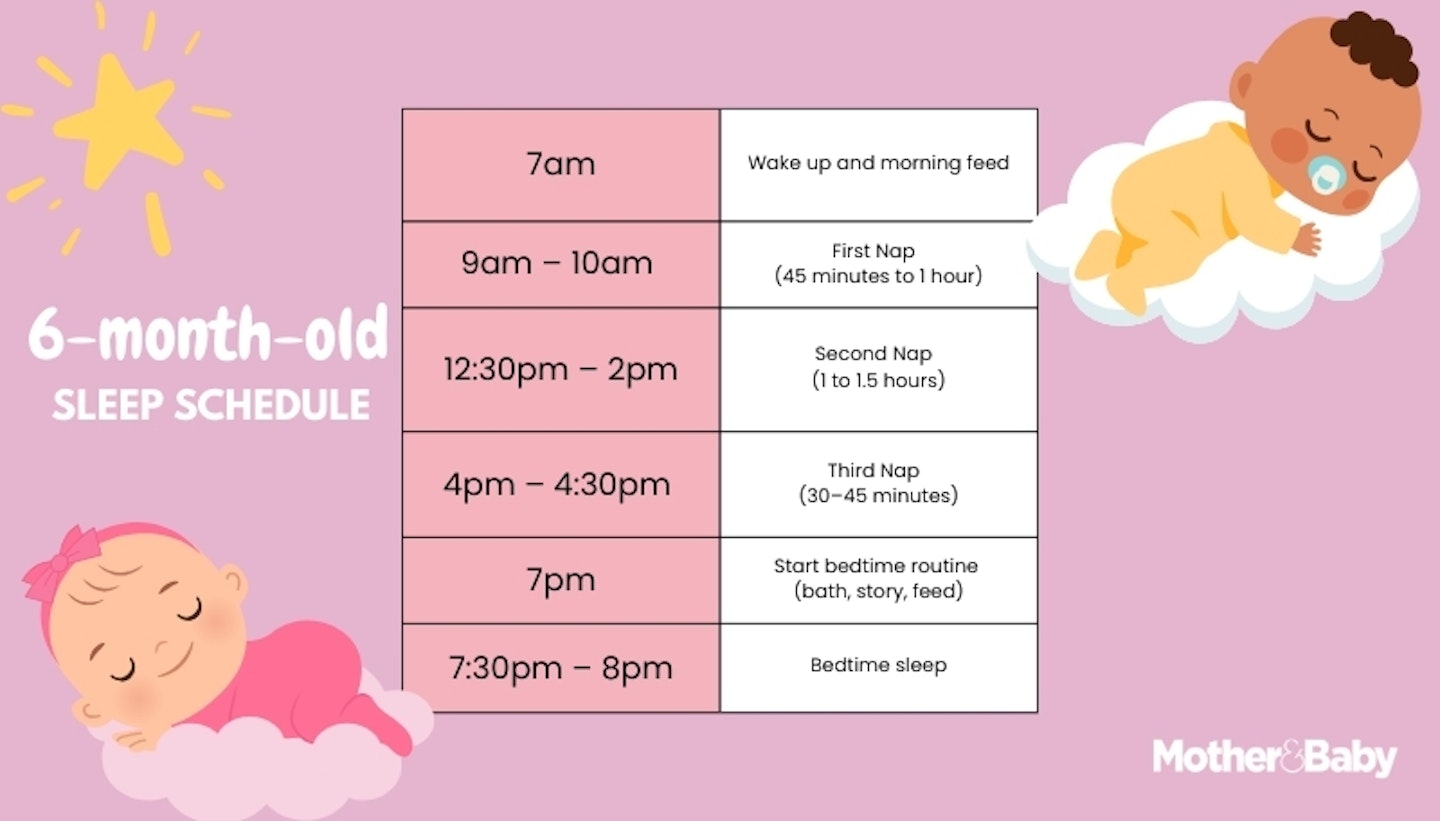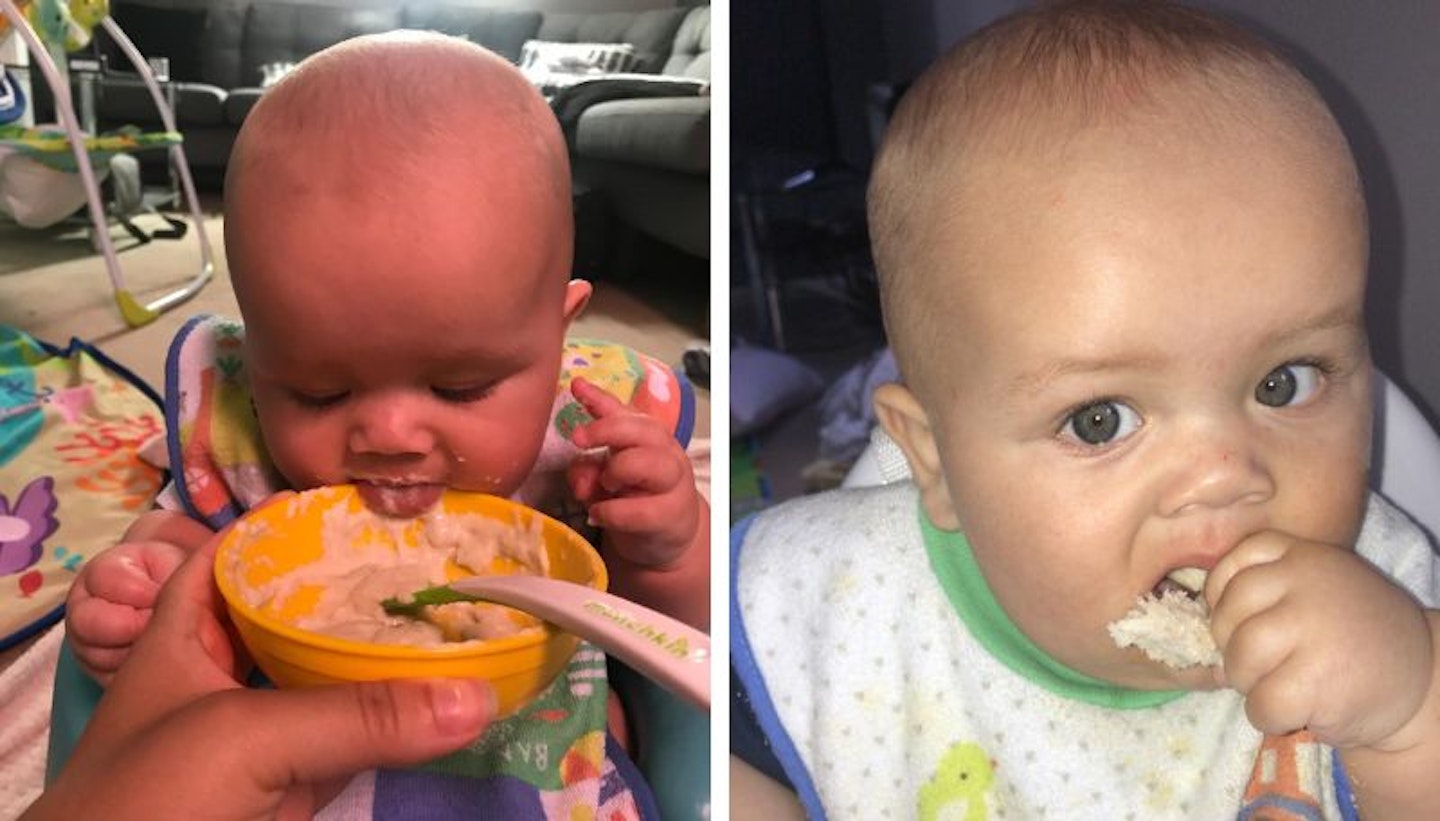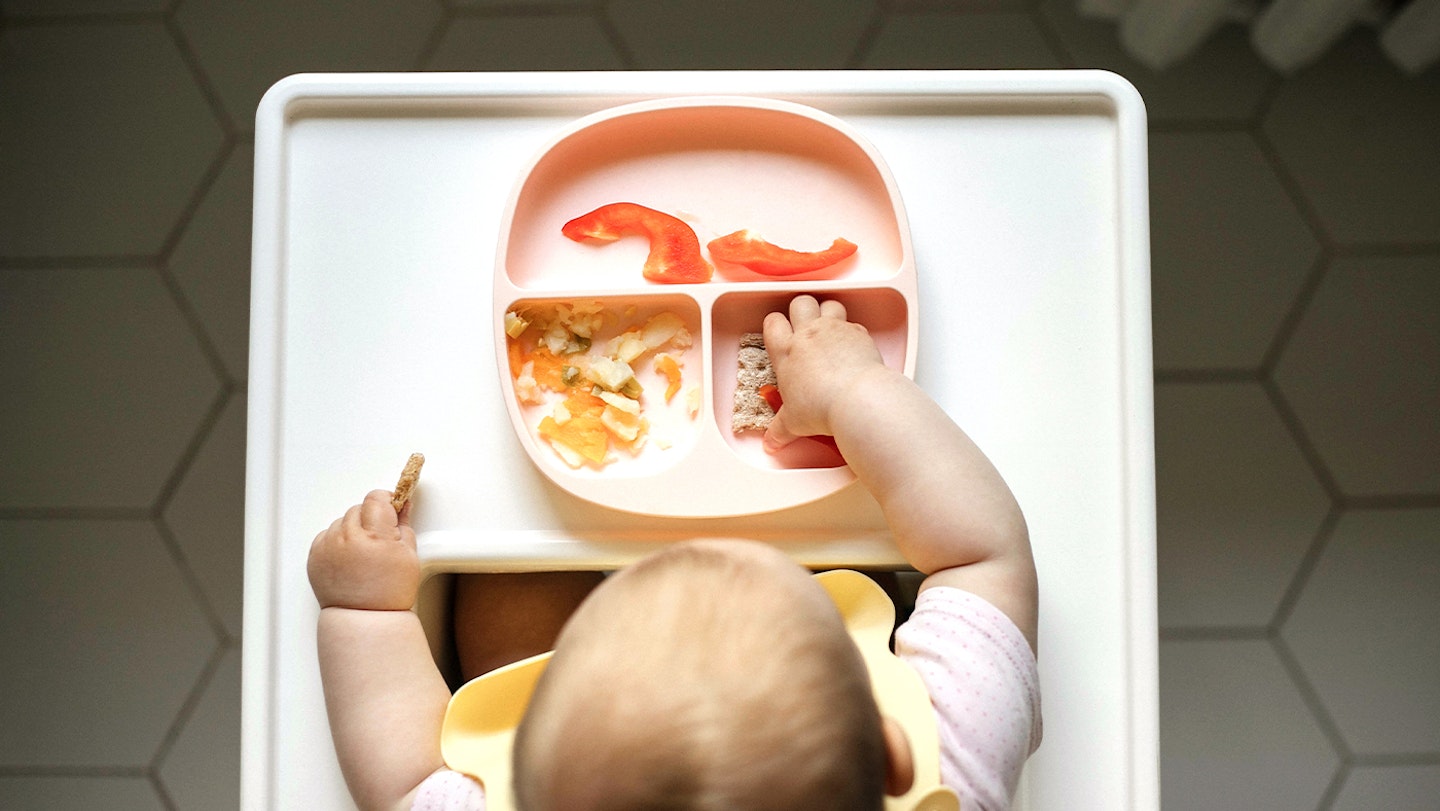
Medically Reviewed by: Dr José Costa, MD
You've blinked, and now you are halfway through your baby's first year. Hitting the 6-month mark is a big deal, and you might notice some exciting changes in your little one from now on. From sitting with support to starting solids, this stage is about exploring and navigating the wonders of this whole new world for you and your not-so-little baby.
You may notice that your child is quickly hitting their baby development milestones; it’s such an exciting stage. But it is completely normal if your baby is reaching milestones at their own pace. So don't worry if your little one isn't quite there yet. All babies develop differently, and this guide is backed by expert insight from Consultant Paediatrician Dr José Costa and midwife Susan Hogan to help you know what’s typical and when to reach out for help.
If you’re a first-time parent or caregiver, think of this as a gentle go-to guide to help you feel more confident as you navigate this exciting (and sometimes overwhelming) stage.
6-month-old baby development milestones:
Sleep Patterns and routine for your 6-month-old baby
Your six-month-old should now sleep about 15 hours daily (although it might not always feel like it). At six months, babies can reach six to eight hours without waking for a feed.
"Your baby may still be waking every two hours, or they may be sleeping for longer stretches at night, possibly up to eight or nine hours," says co-founder of The Baby Academy, Susan Hogan.
"They may also take two to three naps during the day, each lasting about 45 minutes to three hours. With sleep, it's important to remember that there are many variations of 'normal'"
To give you a guide, here is our sleep schedule recommendation.

Our top sleep tips for 6-month-olds:
• Establish a calming bedtime routine — A predictable wind-down with a relaxing bath, cosy story, or soothing lullaby helps your baby link these cues to sleep.
• Encourage daytime naps — Overtired babies often struggle to settle at night, so regular naps during the day can lead to better nighttime sleep.
• Create a sleep-friendly environment — Keep the room dark, quiet, and cool, and you may also want to invest in a white noise machine to block out household sounds that might disturb them.
Sensory & Cognitive Development for your 6-month-old baby
At around six months old, your baby is going through an exciting sensory and cognitive growth stage. They’re starting to explore the world through touch, taste, sound, and sight. From grabbing their favourite toys to recognising familiar faces and reacting to their own name. Dr Costa says that most babies will also start to laugh between six and seven months.
"As your baby’s hand skills improve, they will also start exploring objects more, moving them from hand to hand and briefly searching for a fallen object." He adds.
"Your six-month-old may start to make more sounds and possibly say their first word, eg, DaDa! But they will not yet be able to have a conversation. They will still be learning to communicate through facial expressions and body language," adds Susan.
Simple activities like peekaboo, textured play mats, and singing nursery rhymes can help stimulate their brain, boost memory, and strengthen the bond between you both as they learn about their surroundings.

Feeding and nutrition for 6-month-old baby
At six months old, your baby is hitting an exciting milestone. It's time to start weaning. Whether you’ve been breastfeeding, using formula, or both, this is the stage where solid foods join the menu alongside milk, but importantly, not replace it. At this age, milk (breast or formula) will still be their main source of nutrition, while solids offer new tastes, textures, and nutrients.
NHS advice states that weaning should start around six months, and if your little one can sit up holding their head and chest straight and steady, now is the time to consider whether you are interested in baby-led weaning, spoon-fed weaning or a combination.
Milk feeds at six months:
A six-month-old typically feeds four to six times daily, but this can vary depending on your baby’s needs, appetite, growth spurts, or comfort. Feeds can last anywhere from five to 20 minutes per breast if you're breastfeeding, and babies might switch between sides during a feed.
For formula-fed babies, the average amount is around 180–240ml (six to eight ounces) per feed, usually four to five times a day. Some babies naturally start taking slightly less milk as they begin eating solids, but many keep the same intake while getting used to new foods.
Introducing food:
At six months, your baby can start trying single-ingredient purees like carrots, sweet potato, or pear, or opt for the baby-led weaning route, offering soft, finger-sized pieces for them to explore.
In the first weeks of weaning, aim for one small meal a day, about one to two teaspoons to start, and let your baby guide the pace. Their appetite will vary daily, which is completely normal. The key is exposure to new food, not volume.
Growth of your 6-month-old baby
At around six months, your baby’s weight is usually tracked using percentile charts. These help health professionals monitor growth over time. Percentiles show how your baby compares to others of the same age; for example, if your little one is on the 50th percentile, it means they’re right in the middle (50 per cent of babies weigh more and 50 per cent weigh less). While the average 6-month-old weighs between 14 and 19 lbs, depending on birth weight and growth patterns, every single baby grows at their own pace. Midwives plot your baby’s weight on a growth chart in your 'Red Book' (Personal Child Health Record), which helps spot healthy progress or any concerns early on.
"Of course, every baby is different and will grow at their own rate," reminds Susan. "You will be assigned a Health Visitor (HV) who will be your link to healthcare professionals. Your HV will ensure your baby is thriving in the first few days, weeks, and months of their life."
Did you know you can attend free baby clinics to have your baby weighed and measured? When your baby was a newborn, these visits were usually monthly, but from six months onwards, you can now go every two months. Clinics are often held at GP surgeries or community health hubs, with health visitors on hand to offer advice and support.
"Your baby’s growth will start slowing down, and soon they will be able to sit unsupported. This will allow them to look around them, trying to reach objects nearby," explains Dr Costa.
"They may also start to develop more control over their hand movements and be able to transfer objects from one hand to the other," says Susan. "You might hear other parents saying that their baby is left-handed or right-handed, but it is worth noting that at this age of your baby’s life, it is not normal for them to have a hand preference (hand preference usually starts to develop between the ages of two to four years old)."
Teething at 6 months:
You can expect your baby's lower central incisors - that's her two front bottom teeth - to emerge at around six months. Common teething symptoms include dribbling, chewing, red gums and cheeks and irritability. Thankfully, there are plenty of teething remedies to help your little one.
Health and safety tips for your 6-month-old baby
In the first few months, your antibodies and the relatively germ-free environment you provided for your baby have shielded your children from many common germs. At six months, they are more susceptible to getting a little under the weather. Little ones are likely to become ill many times in their first few years of life. So here are the signs to look for when you think your child may be unwell and some tips to keep germs at bay.
When to seek medical advice:
• A high fever (above 38°C) or a persistent low-grade fever.
• Fewer wet nappies, or unusual drowsiness and changes in feeding.
• If your baby is unusually irritable or hard to settle.
• A rash, difficulty breathing, or a bulging soft spot (fontanelle).
Basic hygiene practices:
• Always wash your hands before and after feeding, changing nappies, or handling sterilised bottles. While you might wonder if you can stop sterilising bottles at 6 months, the NHS advises that you continue until your little one is at least 12 months old.
• Keep feeding equipment (bottles, teats, spoons) thoroughly cleaned and sterilised.
• Sterilise and clean toys and teething rings regularly.
• Encourage wiping your baby’s hands and face after meals and introducing gentle hygiene habits early.
Creating a Safe Environment:
To reduce the risk of SIDS, ensure your baby’s sleep space is free of pillows, loose bedding, and soft toys.
• Keep small objects, sharp items, and choking hazards well out of reach as your little ones are starting to explore.
• Install safety gates at the top and bottom of stairs if your baby is becoming mobile.
• Never leave your baby unattended on raised surfaces like changing tables, sofas, or beds.
Practical Parenting Tips - Looking After Yourself
At six months, your baby is starting to show a whole new personality, but that doesn’t mean things suddenly get easier. Sleep regressions can hit again around this time, so don’t be afraid to lean on your friends and family. When it comes to weaning, our advice is, 'Keep it simple'. Puree and soft finger food. Just remember that the mess is all part of the process. Emotionally, this stage can be intense: your baby and your expectations are growing fast. But try to remember, you’re not behind, you’re learning together.
Things to think about at 6 months

• Play - There are plenty of fun activities for 6-month-old babies that you can do from home that will aid their development and help enhance your bond even more.
"Encourage your baby to explore their environment and play with toys to help with their development," Susan suggests.
• Language - You can increase the length and complexity of your sentences and start playing small games with them, including peek-a-boo, " suggests Dr Costa. Using mirror toys will help them recognise themselves and control their movements, " he adds.
• Introduce a cup or beaker - Introduce your baby to an open or free-flow cup without a valve, as this is better for your child's teeth and will help them learn to sip. It may get a bit messy at times, but patience is key.
• Sitting up - After learning to roll around at five months old, it's likely that your youngster will have full control of their neck muscles now, which means they might be trying to sit up unassisted between now and seven months. This may only last for a few seconds, but it's all good practice. Surround them with pillows just in case they topple.
Your baby’s six-month milestone marks an exciting period of discovery, development, and change for your little family. From sitting up and starting solids to navigating sleep shifts and emotional leaps, it’s a time of big progress and even bigger feelings. You’re doing better than you think and your love, care and presence are exactly what your baby needs. You’ve got this.
Your FAQS about your 6-month-old baby's development
What milestones should my 6-month-old be reaching?
At around 6 months, many babies start rolling over, sitting with support, babbling, and reaching for toys. Every baby develops at their own pace, so try not to stress if your little one is still working on some of these skills; they’re learning every day
Is teething common at six months?
Absolutely. Many babies get their first tooth around 6 months (though it can happen earlier or later). Expect extra dribbling, chewing, and fussiness.
About the experts
Dr José Costa is a Consultant Paediatrician and fellow of the Royal College of Paediatrics and Child Health. He has over 16 years of experience in Paediatrics and over 12 years in Paediatric Allergy. Previously he led the Paediatric Allergy Services at University Hospitals Coventry & Warwickshire. Before that, he led the Paediatric Allergy Service at Sherwood Forest Hospitals NHS Foundation Trust.
This article contains expert advice from midwife and co-founder of The Baby Academy, Susan Hogan. Sue’s main mission in all of the work she does is "supporting new families, helping them to feel confident and in control during their pregnancy, their birth and as they grow as a family unit."
About the author
Hannah Carroll is our Senior Digital Writer. In her capacity, she curates top-notch listicles, crafts insightful how-to guides, and delivers expert product reviews. As a mother of three, Hannah draws upon her comprehensive understanding of all facets of family life to bring true insight into all the products that make running a home easier.
